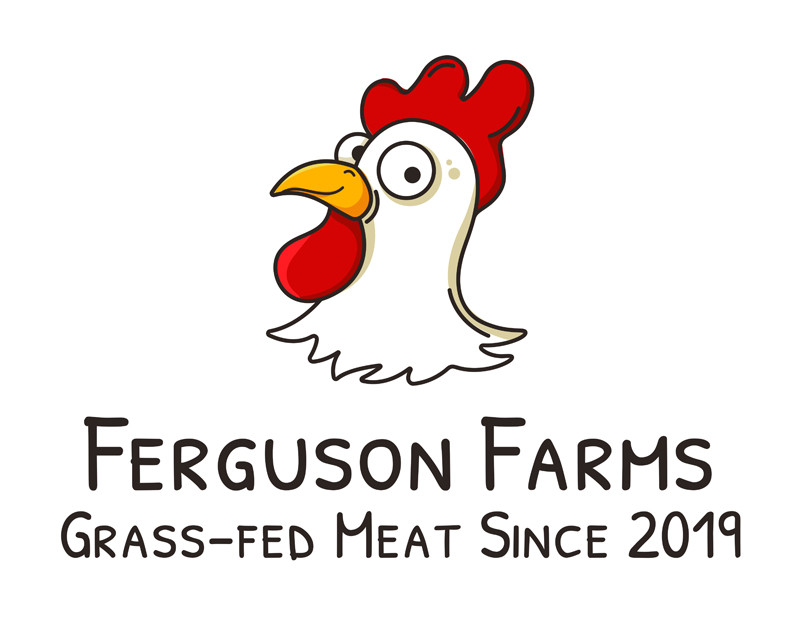The Top Benefits of Pasture Raised Chicken
posted on
April 5, 2022

There are several benefits to raising chickens on pasture and just as many benefits to the consumer who eats pasture-raised meat. Whatever your reasons for making the switch from factory-farmed chicken to pasture-raised, you’re doing yourself, the environment, and the animals a great service by doing so. There are many benefits of pasture-raised chicken.
Raising animals on pasture is an ancient farming practice that serves both the animals and the land in equal measure. Allowing chickens to supplement their diet with pasture grazing makes for healthier birds and healthier land.
Here are just a few of the reasons to consider purchasing pasture-raised chicken - we’ll explore each of them in more detail later in this post.
The top benefits of pasture-raised chicken:
- Pasture-raised chicken is sustainable, and better for the environment
- Chickens raised on pasture are a more nutritious food source
- Pasture-raised chickens are treated humanely and provided ample access to fresh air, sunlight, and grazing area
- Farmers who raise animals on pasture care about and give back to the environment
Raising Chickens on Pasture is Better for the Environment
For starters, chickens raised on pasture both live off the land and give back to the land. When chickens are afforded ample time to roam and forage outdoors, they have access to nutrient-dense food in the form of insects, worms, grass, and seeds, which provide a wealth of extra vitamins and minerals to their diet. Allowing chickens to forage in their natural rhythm means that whatever they consume is given back to the land in the form of manure.
Many gardeners are aware of the incredible benefit that chicken manure provides to the soil. While too strong to be used directly on plants, it is a wonderful soil amendment that increases the moisture capacity of the dirt and adds beneficial and necessary microorganisms back to the land. Pasture-raised chickens live on and forage off of the pasture, and the resulting chicken manure helps to rejuvenate the land so that the cycle can begin again.
This “cycle of life” practice of raising animals takes sustainability to the next level - this process is much more than sustainable, it is regenerative - meaning that the practice of raising chickens on pasture actually revitalizes the land, rather than depleting it. Unlike the practice of industrial-based agriculture, where the land is used just for the purpose of producing a product, regenerative agriculture is as much focused on the health and conservation of the land as it is on the resulting crop.
Pasture-Raised Chicken is More Nutritious
One of the main reasons we started Ferguson Farms is that we saw the effect that switching to a whole-foods centered, paleo diet consisting of pasture-raised poultry and meat had on our own family’s health. Compared to factory-farmed or barn-raised birds, Pasture-raised chicken has been proven to be three times as high in omega-3s, 50 percent higher in crucial vitamins such as A, D, and E, and lower in saturated fats by a whopping 21 percent.
By allowing our chickens to graze on a new pasture daily, we give them access to the natural nutrients chickens are meant to have, from sources such as insects, worms, seeds, nuts, and grasses. Pasture-raised chickens are healthier naturally, and that means that in the end, we can provide our customers with healthier meat, raised without the use of drugs, antibiotics, or hormones.
Pasture-raised chicken also contains higher amounts of amino acids, including glutathione, which is so beneficial that many people take it in supplement form to reduce inflammation, aid in detoxification, and increase energy, just to name a few benefits. We believe that it’s best to obtain nutrients from food when possible, rather than supplements, and that’s why we recommend a whole foods-based diet rich in fresh vegetables and pasture-raised meat. Pasture-raised chicken has been shown to have six times the glutathione of regular chicken, even chicken that is free-range and organic.
Humanely-Raised Chickens are Happy Chickens
...and happy chickens are healthy chickens! While many industrially-raised chickens are confined to tight, crowded spaces (sometimes housed with literally thousands of other chickens), pasture-raised birds are given plenty of access to sunlight, and fresh air, and allowed to move around and forage as chickens were meant to do. Chickens raised conventionally are fed a diet of genetically engineered corn and soy, given hormones to increase their size, and fed a steady diet of antibiotics to avoid the spread of disease from so many birds living in such close proximity to each other.
On the other hand, pasture-raised chickens are fed a primary diet of balanced feed, supplemented by an instinctive diet rich in insects, worms, legumes, grasses, and seeds found naturally while foraging. The resulting meat is higher in vitamins, nutrients, and essential fatty acids due to the varied diet that the chickens are exposed to during their lifetime.
A healthier diet is just one benefit of being raised on pasture. It doesn’t take an experienced farmer to guess that an animal who lives most of its life outdoors with access to sunlight, fresh water, and a pasture to graze on is going to be healthier and happier than one confined to a dark, crowded, dirty space.




